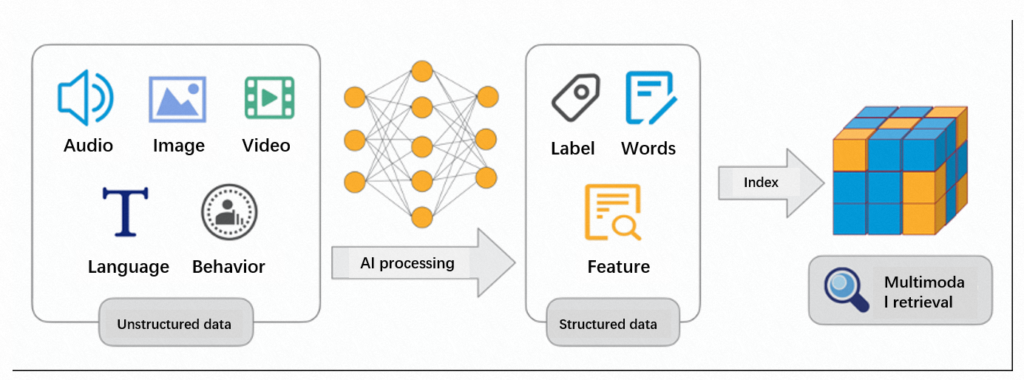
Boost Your Search Efficiency with Vector Search: Revealing its Significance, Operations, and Applications
What is Vector Search?
Vector Search, an advanced technology based on machine learning (ML), changes how we find and retrieve unorganized data, including text, images, and more. By using approximate nearest neighbor (ANN) algorithms, Vector Search excels in semantic search, providing highly relevant results faster than typical keyword-based methods. This guide explores the importance of Vector Search, how it works, and its various applications in different industries.
Why is Vector Search Important?
Keyword searches often struggle with unclear queries or when users can’t express their exact needs. Vector Search helps by letting users find information based on meaning rather than specific keywords. By converting unorganized data like videos, images, and audio into vector embeddings, it enables quick and accurate similarity searches. Combining Vector Search with filtering and aggregations enhances the user experience, blending vector-based relevance with traditional scoring methods.
Understanding the Vector Search Engine Mechanism
Vector Search engines, also called vector databases or semantic search engines, work by finding the nearest neighbors of a given query within the vector space. Unlike traditional search methods relying on keyword matches, Vector Search engines evaluate similarity based on the closeness of data points in the embedding space. This transforms the task of finding related content into a search for the query’s nearest vector neighbors.
Key Components of Vector Search
Vector Embeddings:
Vector embeddings are numeric representations that capture data and its context, stored as high-dimensional, dense vectors. These models, trained on large datasets, ensure search outcomes are relevant and precise. Additionally, pre-engineered numeric data can serve as embeddings if efficient search capabilities are in place.
Similarity Score:
In Vector Search engines, the similarity score is crucial. It relies on the principle that similar data and documents will have closely aligned vector representations. By indexing queries and documents using vector embeddings, the search aims to find the nearest neighbors of the query, ensuring relevant results.
Approximate Nearest Neighbor (ANN) Algorithm:
Traditional nearest neighbor algorithms, like k-nearest neighbor (kNN), are slow and computationally demanding. ANN algorithms strike a balance between accuracy and efficiency by sacrificing marginal precision to enable rapid, scalable searches in high-dimensional embedding spaces, making them ideal for Vector Search applications.
Exploring Vector Search Applications
Vector search goes beyond traditional search methods, offering a wide range of innovative uses in different fields.
Semantic Search:
Vector Search, which is the foundation of semantic or similarity search, finds relevant content even without exact keyword matches. By understanding meaning and context within embeddings, it retrieves similar or related items for text, images, and audio queries, giving users a smooth search experience.
Question Answering:
Vector Search converts knowledge base documents into text embeddings and uses modern natural language processing (NLP) techniques to provide full-text answers to complex questions. This saves users from sifting through long documents and helps support teams give quick, accurate responses. Using a “question answering” model with text embeddings from both the knowledge base and user queries gives the most fitting answer.
Personalized Recommendations:
Embedding models recognize similar documents and their vectors, allowing for personalized recommendations. For example, applications can suggest movies or products similar to previous purchases, considering factors like popularity or likability. Combining vector distances with other metrics helps recommendation systems optimize for various goals, such as satisfaction scores and revenue potential.
Simplify Your Search Experience with Alibaba Cloud ElasticSearch
Implementing vector search and incorporating NLP models no longer needs to be a complex task. With Alibaba Cloud ElasticSearch, you have access to a comprehensive toolkit for creating AI-powered search applications that are compatible with Generative AI and large language models (LLMs). With Alibaba Cloud ElasticSearch, you can:
- Develop state-of-the-art search applications
- Generate and manage embeddings effortlessly
- Store and efficiently search vectors
- Implement semantic search using Elastic’s Learned Sparse Encoder
Discover how Alibaba Cloud ElasticSearch transforms into a robust vector database, providing your business with unmatched search capabilities. Explore the full potential of Vector Search with Alibaba Cloud ElasticSearch today.
